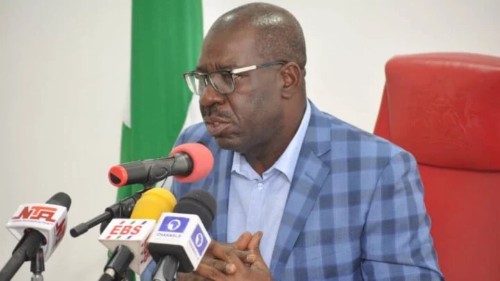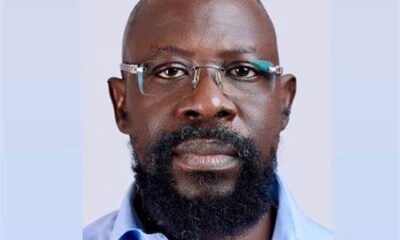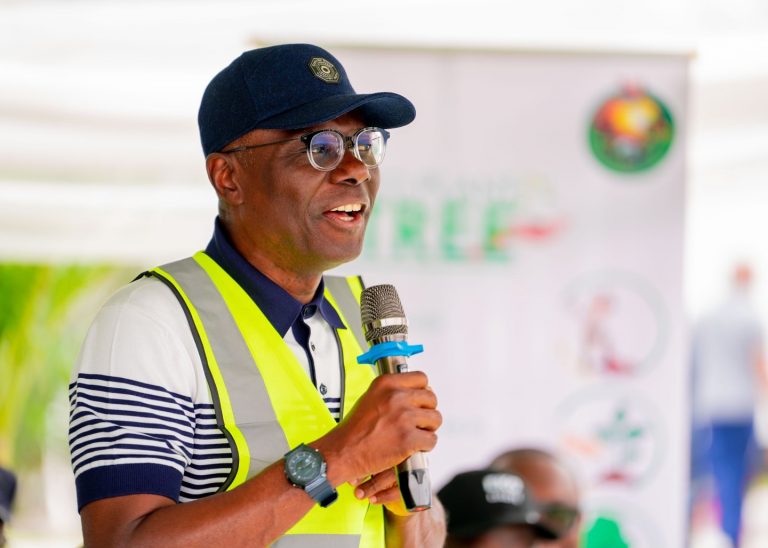The Osun State Fire Service on Monday announced that it had begun an investigation into the fire incident that claimed the lives of a Customs officer attached to the Oyo/Osun Command, Tijani Kabiru, his wife, and four children in their house in Ede.
The tragic incident, which occurred in the Akankan Area of Ede during the early hours of Monday, immediately plunged the community into mourning and sparked panic among residents, who woke up to the news of the victims’ deaths.
Residents from the area where the house was located, when contacted by our correspondent for comments, declined. However, a neighbor of the late Kabiru, a man in his 40s identified only as Kola, said that smoke was first noticed coming from the house around 3 a.m.
Upon realizing that the smoke was coming from Kabiru’s house, Kola said fire service operatives from the Ede Fire Station were contacted.
Despite the prompt response, Kola explained that the house had already been severely damaged before the firemen arrived, adding that Kabiru, his wife, and the four children lost their lives in the blaze, though one of the children managed to escape.
“I can’t say when the fire started, but we observed smoke at about 3 a.m. The response time of the firemen was not bad, but the house had been badly affected before the fire could be subdued. Kabiru, his wife, and four children were already burnt to death. But one of the children escaped death,” Kola said.
When contacted, the spokesperson for the State Fire Service, Ibraheem Adekunle, confirmed the incident in a statement signed by the Director of the Service, Mr. Olaniyi Alimi. He stated that six lives were lost in the fire.
Alimi confirmed that a probe had begun to determine the cause of the fire, which remains unknown.
The statement read in part, “We were informed of the incident via a distress call to our emergency number 08030808254 at 3:21 a.m., and our team from Ede Zonal Command proceeded to the scene, with a backup team joining them from the Fire Service Headquarters, Abere.
“The address of the fire incident is Tijani Kabiru Road, Akankan Area, Ede North LG. The street was named after the deceased, who was a Customs officer from Oyo/Osun Command.
“Mr. Tijani Kabiru, who was reported to be in his late 40s, and his wife, said to be in her early 40s, lost their lives to the inferno, which is believed to have started about an hour before the fire service received the information.
“They (the couple) lost their lives along with four of their children (three boys and a girl), aged between three and ten years. The estimated loss due to the fire is around N200m, while the property saved is valued at N500m.
“Their bodies were handed over to the men of A’ Division of the Nigeria Police Force. Only one of their sons, out of the family of seven, escaped from the fire. The boy, who is about 13 years old, survived. The cause of the incident is still unknown, but a probe to unravel it has begun.”

 BIG STORY3 days ago
BIG STORY3 days ago
 BIG STORY12 hours ago
BIG STORY12 hours ago
 BIG STORY4 days ago
BIG STORY4 days ago
 BIG STORY4 days ago
BIG STORY4 days ago
 BIG STORY3 days ago
BIG STORY3 days ago
 BIG STORY8 hours ago
BIG STORY8 hours ago
 BIG STORY4 hours ago
BIG STORY4 hours ago
 BIG STORY5 days ago
BIG STORY5 days ago




















